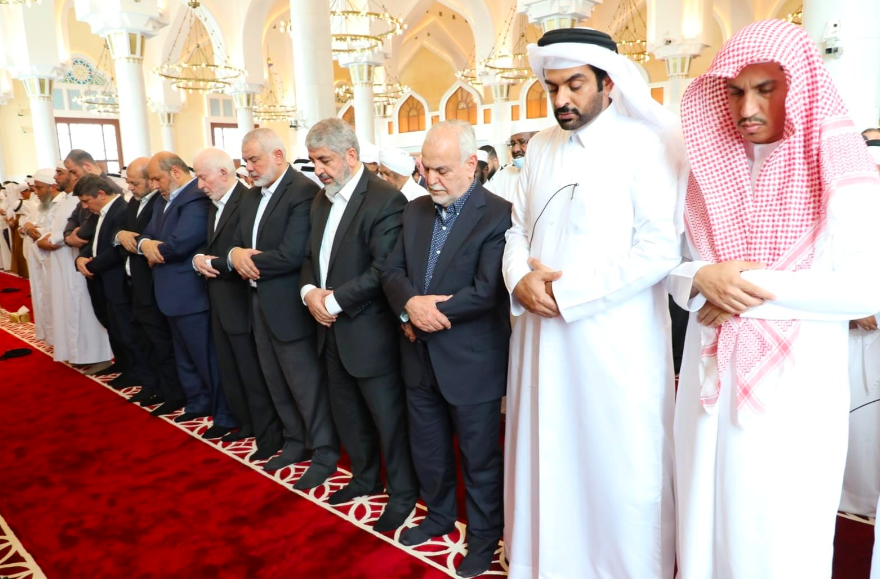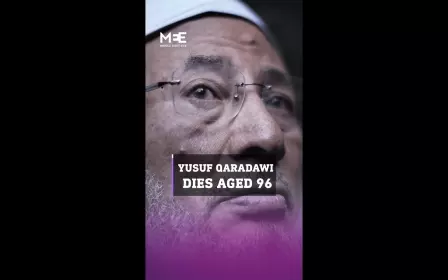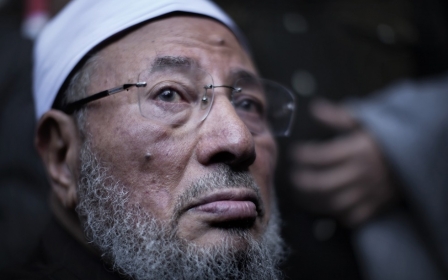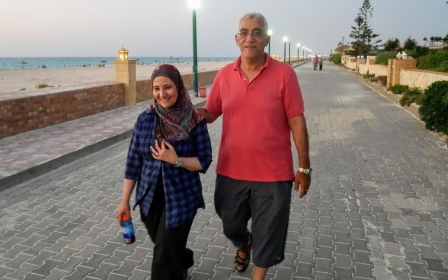Yusuf al-Qaradawi: Hamas and Qatar officials attend funeral of Islamic cleric in Doha
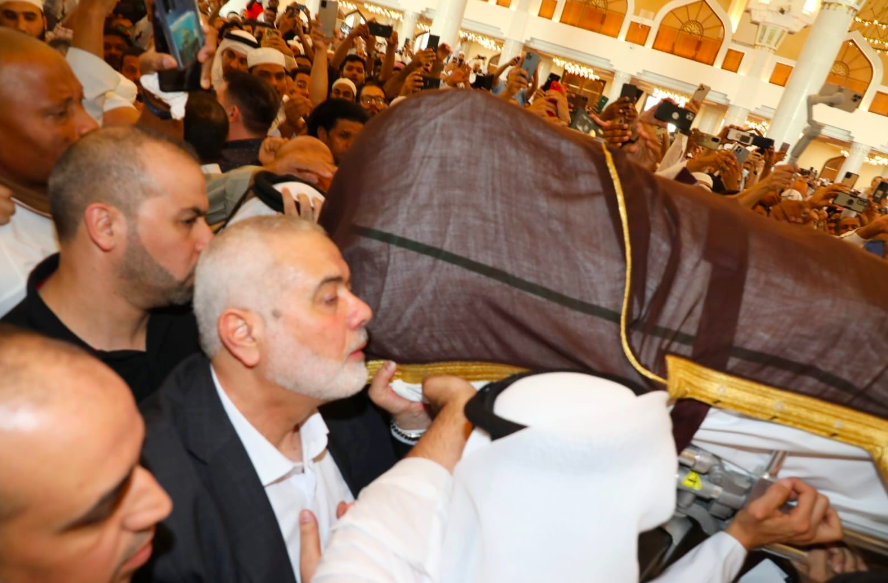
Qatari and Hamas officials were among thousands who walked in the funeral procession of influential Egyptian Muslim cleric Yusuf al-Qaradawi in Doha on Tuesday, as figures from around the Muslim world paid tribute to the scholar.
Qaradawi, the spiritual leader of the Muslim Brotherhood, died in Qatar on Monday at the age of 96. He was among the Islamic world's most renowned - and controversial - clerics and public intellectuals and is one of the few Muslim clerics who publicly backed the 2011 Arab Spring uprisings in Egypt and across the Arab world.
Qatar's Emir Sheikh Abdullah bin Hamad Al Thani, his representative Sheikh Jassim bin Hamad Al Thani, Prime Minister and Minister of Interior Khalid bin Khalifa Al Thani, and Minister of Endowments Ghanem bin Shaheen al-Ghanim attended the funeral.
Ismail Haniyeh, head of the political bureau of the Palestinian movement Hamas, which Qaradawi backed, Khaled Meshaal, who heads Hamas's diaspora office, and Turkey's head of religious affairs Ali Erbash also participated in the procession.
Speaking at the funeral, Haniyeh said that the Arab and Muslim world had lost one of its most prominent scholars who dedicated his life to serving Arab and Muslim issues, particularly the Palestinian cause.
New MEE newsletter: Jerusalem Dispatch
Sign up to get the latest insights and analysis on Israel-Palestine, alongside Turkey Unpacked and other MEE newsletters
"Our sheikh and our role model, Sheikh Yusef, stood by Palestine and did not believe in giving up any inch of it. [He believed] that jihad and resistance are the way to liberate it, and that the cause of Palestine is the cause of the nation," Haniyeh said.
Turkish President Recep Tayyip Erdogan conveyed his condolences to Qaradawi's son, Abdel-Rahman Youssef, in a phone call.
Erdogan said Qaradawi "never gave up on his beliefs throughout his life and was an example to follow on balancing the principles of Islam and life".
Qaradawi supported democracy and the participation of political Islamic groups in elections and denounced groups like al-Qaeda and the Islamic State (IS) as extremists.
The head of Tunisia's Ennahda party, Rachid Ghannouchi, eulogised the cleric in a statement, saying that he "had given his life to the principles of Islam and to defending his nation while stressing on moderation".
Qaradawi was the founder and former chairman of the International Union of Islamic Scholars, a global union of Islamic intellectuals and clerics. He was imprisoned several times in Egypt over his links to the Brotherhood and was among those sentenced to death, in absentia, in 2015, on charges of links to a 2011 mass jailbreak.
Despite his intellectual influence on the Muslim Brotherhood and apparent support for the group, Qaradawi repeatedly denied being a member and turned down several requests by the group to hold senior positions in it.
President Abdel Fattah el-Sisi has cracked down on the Brotherhood since 2013, when he ousted late president Mohamed Morsi, a senior Brotherhood leader, who died in prison in 2019.
Morsi's family mourned Qaradawi in a statement.
Qaradawi has been primarily based in Qatar since the 1960s and his support for the Arab Spring and opposition to Sisi have been cited as one of the reasons for the diplomatic crisis between Doha and several Arab countries, which led to a four-year boycott of Qatar in 2017.
His organisation, the International Union of Islamic Scholars, was listed as a "terrorist organisation" by Egypt, Saudi Arabia, the United Arab Emirates and Bahrain after the rift, which ended after al-Ula summit last year.
Middle East Eye delivers independent and unrivalled coverage and analysis of the Middle East, North Africa and beyond. To learn more about republishing this content and the associated fees, please fill out this form. More about MEE can be found here.


